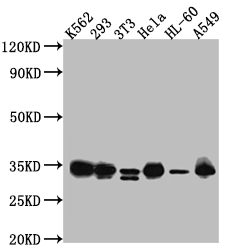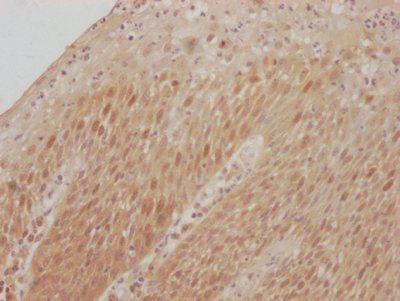The process of producing the CDK2 recombinant antibody involves several stages: sequencing the CDK2 monoclonal antibody-encoding gene, cloning the gene into a plasmid vector, introducing the recombinant vector into a host cell line, and finally, purifying the CDK2 recombinant monoclonal antibody from the supernatant of the cell culture using affinity chromatography. The CDK2 monoclonal antibody is developed from hybridomas that produce the CDK2 antibody, and during its production, a synthesized peptide derived from human CDK2 is used as the immunogen. This CDK2 recombinant monoclonal antibody is highly recommended for use in ELISA, WB, and IHC applications for the detection of human and mouse CDK2 proteins.
The CDK2 protein plays a key role in regulating cell division by phosphorylating a variety of substrates involved in cell cycle progression. CDK2 forms a complex with cyclin E or cyclin A and phosphorylates a number of proteins, including the retinoblastoma protein (Rb) and other transcription factors, resulting in the progression of cells through the G1/S checkpoint and entry into the S phase. CDK2 is regulated by a variety of mechanisms, including cyclin-dependent kinase inhibitors (CKIs), such as p21 and p27, which bind and inhibit CDK2 activity. In addition, CDK2 activity is also regulated by phosphorylation and dephosphorylation events, which can affect its stability and activity. Dysregulation of CDK2 activity has been implicated in a variety of diseases, including cancer, and targeting CDK2 has become an important strategy in cancer therapy.





